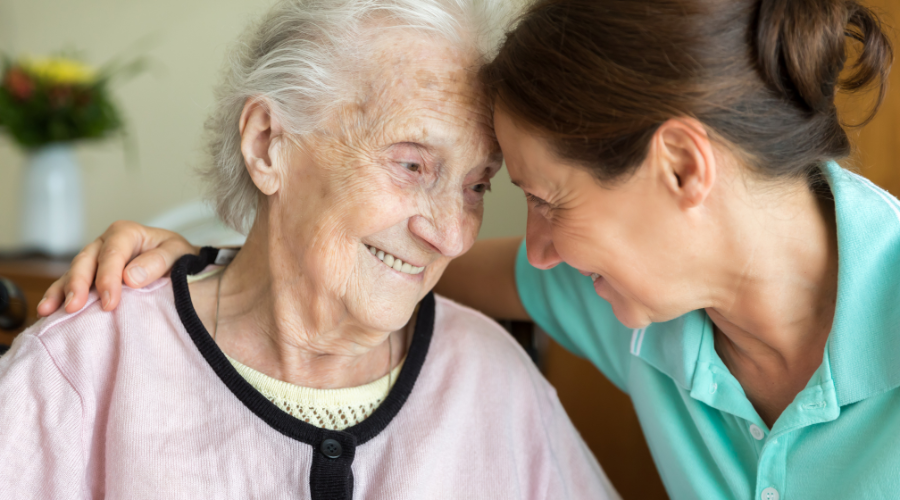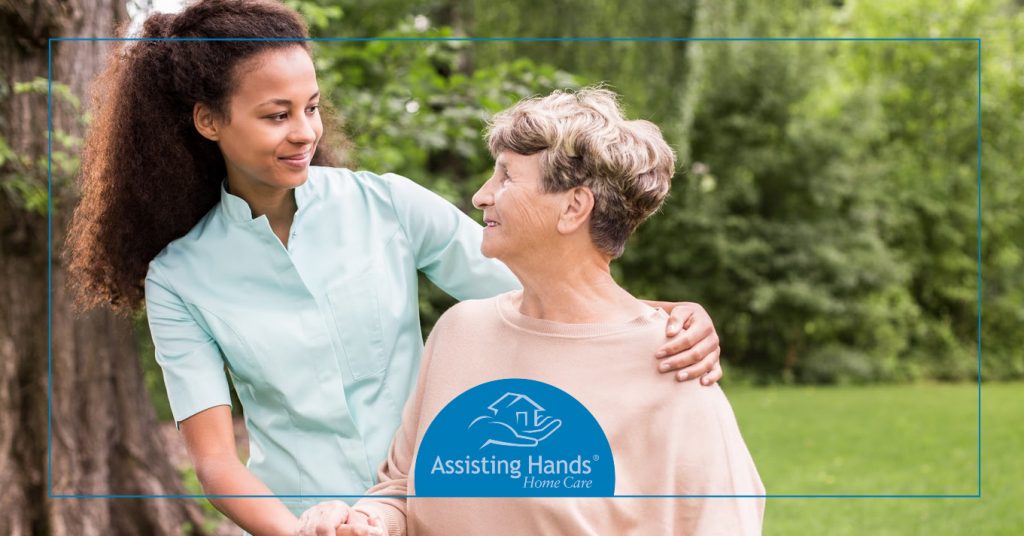
Dementia is a progressive condition, one that only worsens as time goes on. As a result, the responsibilities of caregivers and families of dementia patients will gradually increase with each stage of the disease. Here are 10 tips to help manage dementia in elderly loved ones.
Providing care to a senior with dementia is rarely a one-person job. Both family members and professional caregivers participate in delivering daily care needs to the senior. Families may live either far or near; nevertheless, they can contribute to the well-being of their loved one.
Support Everyday Tasks
Cognitive abilities slowly decline as dementia advances. Seniors diagnosed with dementia experience changes in the way they think, feel, or behave. Dementia can therefore impact the individual’s ability to perform the activities of daily living, like bathing, grooming, and dressing.
Tip 1: Establish routines
Seniors with dementia thrive in routines. Caregivers are urged to establish a daily schedule for eating, bathing, and sleeping. Dementia patients know what to expect when activities are carried out at the same time every day—and this prevents disorientation and frustration.
Tip 2: Encourage independence
Caregivers who assist seniors during showering or dressing are advised to let them perform tasks on their own as much as is safely possible. A feeling of independence can give elderly adults with dementia a boost in self-confidence and self-esteem.
Tip 3: Buy comfortable clothing
Certain types of clothing are more suitable for seniors with dementia, as they are easier to put on and take off, especially when using the bathroom. Clothes with elastic waistbands, fabric fasteners, and large zipper pulls are easier to wear than those with buckles, shoelaces, or buttons.
Support Changes in Communication
Language and communication abilities change in the elderly as their dementia condition progresses. These individuals may have trouble finding the right words or remembering them. Frustration and even anger can ensue as a result. Caregivers, however, can make communication easier.
Tip 4: Modify speech
Caregivers who speak to a dementia patient should speak calmly and listen to their frustrations with empathy and understanding. Whenever possible, encourage two-way conversations. If the senior forgets a name or place, remind them; however, do not ask, “Don’t you remember?”
Tip 5: Create a familiar environment
Older adults with dementia feel secure in an environment that is familiar. As a result, living at home is most preferable. Caregivers can promote feelings of security in their elderly loved ones by placing well-loved objects and family pictures throughout the home.
Tip 6: Distract the senior
Seniors with dementia will struggle to find the right words. If they begin to feel frustrated, distract them by initiating an activity. Try showing the seniors photos from a family photo album or reading to them from a book. Also provide them with continual reassurance.
Encourage a Healthy Lifestyle
A healthy lifestyle promotes optimum physical and cognitive functioning, even in older adults living with dementia. Eating nutrient-rich foods and exercising on a daily basis can be challenging for dementia patients. Despite the hurdles, caregivers should encourage an active lifestyle.
Tip 7: Choose activities carefully
Consider seniors’ limitations when encouraging them to pursue physical activities. It is important to match the activity with what the seniors can realistically perform. Gardening, household chores, and cooking are low-impact activities that can keep dementia patients active and engaged.
Tip 8: Offer choices
Consuming foods rich in vitamins is crucial to a healthy lifestyle. Caregivers should buy a variety of vegetables and fruits; but choose foods that are easy to prepare, such as premade salads. Give the seniors choices about what to eat. Ask if they’d like yogurt or cottage cheese, for example.
Promote Safety at Home
A safe home environment can prevent dementia patients from falling or wandering. Modifying the home so that seniors with dementia do not trip over clutter or wander is necessary to ensure their protection. A safe home also lets them move around more freely and independently.
Tip 9: Remove trip hazards and clutter
Small rugs and electrical cords are trip hazards for seniors, so remove them. Similarly, clear clutter from walkways to prevent a stumble. Add nightlights to the hallway leading up to the bathroom to increase visibility at night. In fact, all areas the senior visits should have good lighting.
Tip 10: Practice household safety
Lock up potentially dangerous items, such as guns, alcohol, and toxic cleaners. Caregivers are also advised to lower the thermostat on the hot water heater to prevent burns. Ensure a fire extinguisher is within easy reach and that the carbon monoxide detector is installed with fresh batteries.

As dementia advances, the senior will become more dependent on family members or caregivers. Caring for a senior with dementia requires flexibility and patience. When you struggle to deliver quality care to a senior with dementia or need a break from caregiving, let Assisting Hands Home Care help.
As a home care agency staffed with a team of compassionate memory care providers, we will ensure your aging loved one receives dependable care at home. Our caregivers are trained to identify and manage symptoms of dementia while supporting the senior with the activities of daily living.
Seniors with dementia may wander, for instance. Assisting Hands Home Care dementia caregivers gently guide the senior to safety. When incontinence occurs, we provide discreet assistance. Agitation can arise in those with dementia, and our experienced caregivers help them calm down.
In addition to memory home care services, professional caregivers from our elder care agency support seniors with personal hygiene tasks, meal preparation, grocery shopping, transportation to doctors’ offices, and errands and light housekeeping. We are also excellent companions, keeping social isolation at bay.
When you need reliable, trustworthy dementia care, choose Assisting Hands Home Care. Our qualified caregivers are background checked and trained in CPR, so you enjoy maximum peace of mind. Schedule an in-home consultation and we’ll develop a customized care plan. Call us at (630) 407-1932 for quality memory home care.















